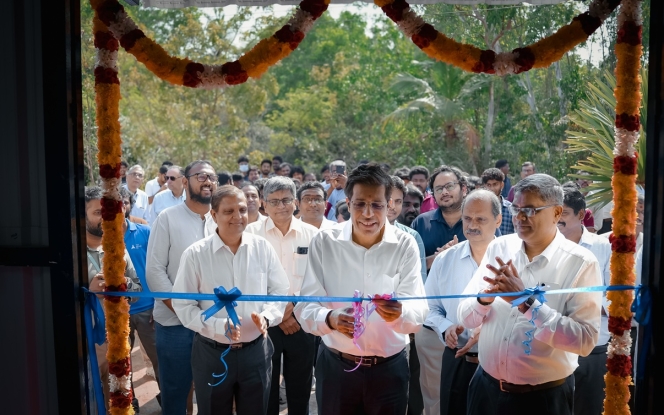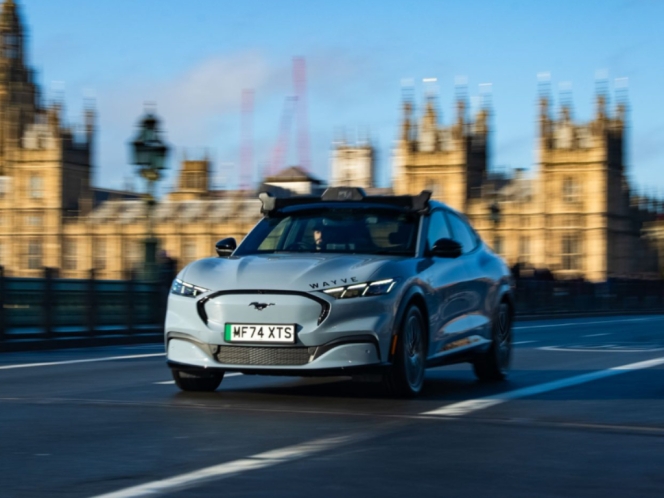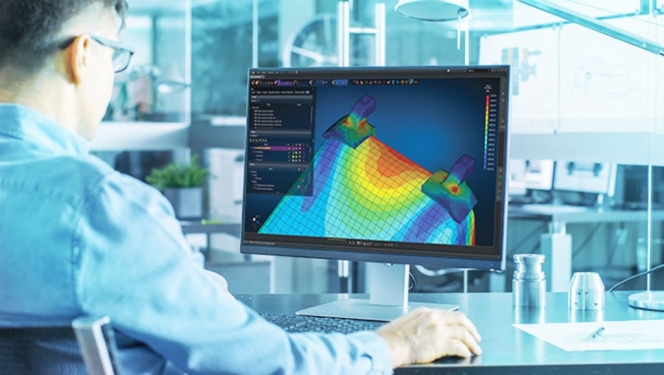- Bharat Stage 7
- emission norms
- government of india
- ministry of road transport and highways
- automobiles
- on road and on highway
- controllers
- technology
- cost
- Euro 7 emission norms
BS 7 Will See A Considerable Rise In Controllers Onboard A Vehicle
- By Bhushan Mhapralkar
- December 22, 2024

With factors like exhaust emissions, non-exhaust emissions, battery durability and lifetime requirements (in terms of mileage and lifetime) as the key requirements, vehicles complying with BS 7 emission regulations will see a considerable rise in onboard controllers.
The commercial vehicles will be particularly subject to a doubling of controllers onboard as the new emission regulations kick in the next two to three years, mentioned a technology chief of an automobile company in India recently.
The number of controllers will double in a commercial vehicle from 10 to 20, he explained. He drew attention to the move up to Euro 7 emission norms in Europe and stated, “The BS 7 emission norms in India are loosely based on the Euro 7 emission regulations that come into effect in Europe in 2025.”
The Euro 7 emission regulations in Europe will come into force for passenger vehicles from 1 July 2025. The Euro 7 emission regulations for commercial vehicles will come into force from 1 July 2027.
The BS 7 emission regulations draft is out, mentioned an auto components industry leader. “The emission regulations, like in Europe, are expected to be enforced in a staggered manner,” he added.
The government is expected to announce the BS 7 regulations for passenger vehicles and two-wheelers in the middle of next calendar year. These would closely follow the RDE norms that came into force from middle of last calendar year.
The effect of BS & emission norms is expected to be considerable in terms of price escalation in vehicles.
- The ePlane Company
- IIT Madras Discovery Campus
- IIT Madras
- V Kamakoti
- eVTOL
- DGCA
- NVIDIA
- AWS
- Dassault
- CADFEM-Ansys
- Satya Chakravarthy
The ePlane Company Opens eVTOL Testing Facility At IIT Madras
- By MT Bureau
- February 27, 2026

The ePlane Company has inaugurated a 60,000 sqft integrated prototyping and testing facility at the IIT Madras Discovery Campus. The site is the first dedicated plant in India for the serial production of electric vertical take-off and landing (eVTOL) aircraft, marking a transition from laboratory research to industrial manufacturing.
The facility was opened by Professor V. Kamakoti, Director of IIT Madras. It will serve as the engineering centre for the e200X, a compact electric air taxi designed for urban environments.
The site includes units for composite fabrication, electric powertrain assembly, and avionics testing. It also features a Ground Test Vehicle (GTV) facility to support subsystem validation. The ePlane Company is currently working with the Directorate General of Civil Aviation (DGCA) to establish the certification and flight-testing framework for the e200X.
Key technical specifications of the e200X include:
- Footprint: A 8m x 10m design, intended for rooftop-to-rooftop operations.
- Efficiency: Synergistic Lift technology providing 35 percent higher energy efficiency.
- Deployment: Initial commercial application as an air ambulance to reduce medical transport times.
Incubated at IIT Madras, the company utilises the institute’s infrastructure and engineering talent. The ePlane Company has also established partnerships with technology firms including NVIDIA, AWS, Dassault and CADFEM-Ansys for simulation, cloud infrastructure and avionics.
Prof. Satya Chakravarthy, Founder and Technical Lead of The ePlane Company, said, "This facility is the engine of our commercial future. With the support of IIT Madras, we have built a space where we can fulfill our vision of making flying as common and affordable as taking a taxi. This isn't just about moving people; it’s about adding another layer of transport to the future of human mobility.”
- Wavye
- Uber
- SoftBank Vision Fund 2
- Eclipse
- Balderton
- Ontario Teachers' Pension Plan
- Baillie Gifford
- British Business Bank
- NVIDIA
- Microsoft
- Mercedes-Benz
- Nissan
- Stellantis
- Alex Kendall
- Dara Khosrowshahi
- Satya Nadella
Wayve Raises $1.2 Billion To Scale Autonomous Driving Platform
- By MT Bureau
- February 26, 2026

UK-headquartered Wayve, a developer of embodied AI for autonomous driving, has raised USD 1.2 billion in a Series D investment round. The funding brings the company’s valuation to USD 8.6 billion and marks a transition from research to the commercial deployment of its AI platform.
The round was led by SoftBank Vision Fund 2, Eclipse and Balderton. New participants include the Ontario Teachers’ Pension Plan, Baillie Gifford and the British Business Bank. Strategic investors Microsoft, NVIDIA and Uber also participated alongside automotive manufacturers Mercedes-Benz, Nissan and Stellantis.
Wayve’s platform uses end-to-end AI, which runs on onboard vehicle compute and embedded sensors. Unlike traditional autonomous systems, it does not require high-definition maps or location-specific engineering. This architecture allowed the company to test its technology in more than 500 cities across Europe, North America and Japan without city-specific fine-tuning.
Key milestones include:
- 2026: Launch of robotaxi trials on the Uber network, starting in London.
- 2027: Availability of passenger vehicles equipped with Wayve’s ‘AI Driver,’ featuring L2+ capability for steering and navigation under supervision.
- Licensing: Wayve will license its software to automakers, allowing for brand-specific customisation of driving models.
Uber has committed capital to support the deployment of Wayve-powered robotaxis in more than 10 markets globally. Under this agreement, Wayve provides the AI Driver for L4-capable vehicles, while Uber manages the fleet operations.
Alex Kendall, Co-Founder and CEO, Wayve, said: “With USD 1.5 billion secured, we are building for a total addressable market that spans every vehicle that moves. Autonomy will not scale through city-by-city robotaxi deployments alone. It will scale through a trusted platform that automakers and fleets can deploy globally and improve continuously. This investment accelerates our path to widespread commercial deployment and positions us to build the autonomy layer that will power any vehicle, anywhere.”
Dara Khosrowshahi, CEO, Uber, said, “We are very proud to continue to deepen our partnership with Wayve, with plans to deploy together in more than 10 markets around the world. Wayve’s powerful end-to-end approach is purpose-built for scale, safety, and effectiveness, and we’re excited to work with them across multiple OEMs and geographies, which we’ll share more about soon.”
Satya Nadella, Chairman and CEO, Microsoft, added, “Wayve is pushing the frontier of embodied AI for autonomous driving, and Azure supports the scale, reliability, and safety needed to bring that innovation into the real world. Through our partnership and investment, we’re helping accelerate the path from breakthrough research to scaled commercial deployment with automakers worldwide.”
Elektrobit And Mobileye Integrate Linux OS Into Level 4 Autonomous System
- By MT Bureau
- February 25, 2026

Elektrobit and Mobileye have announced the integration of EB corbos Linux for Safety Applications into Mobileye Drive, a system designed for Level 4 autonomous driving. The platform will serve as the technical foundation for vehicle manufacturers and robotaxi vendors.
The collaboration utilises Elektrobit’s safety-compliant operating system (OS) to provide features and field updates for Mobileye’s self-driving architecture.
EB corbos Linux for Safety Applications is an open-source OS solution assessed for compliance with automotive functional safety standards. It has received a technical assessment for ASIL B and SIL2 by TUV Nord, based on ISO 26262 and IEC 61508 standards.
The solution allows manufacturers to use Linux in high-performance computing (HPC) domains, specifically for advanced driver-assistance systems (ADAS) and autonomous vehicles (AV). By utilising open-source software, the companies aim to leverage transparency and innovation speed compared to proprietary systems.
Mobileye Drive is designed to automate vehicle types for applications including ride-pooling, public transport, and goods delivery. The system is powered by the EyeQ System-on-Chip (SoC) and utilises AI-driven computation.
The technology is intended for operation without human intervention within defined areas. Mobileye Drive is currently undergoing testing in locations across Europe and North America, drawing on the company's deployment history in approximately 230 million vehicles globally.
Maria Anhalt, CEO, Elektrobit, said, “Our industry is at a pivotal moment, with carmakers, Tier1 suppliers, and technology companies increasingly joining forces to advance autonomous driving. Working with Mobileye and opening up our cooperation on EB corbos Linux for Safety Applications reflects our commitment to practical, safe, and scalable innovation. Together, we are helping pave the way for the next generation of reliable autonomous driving systems”
Johann ‘JJ’ Jungwirth, Executive Vice-President Autonomous Vehicles, Mobileye, added, “Working together with software innovators in the automotive field like Elektrobit is a key factor in expediting the mass-production of vehicles equipped with the self-driving system Mobileye Drive. Our customers expect to deploy AVs in large numbers in the upcoming years, increasing the importance of system stability and reliability.”
- Cadence Design Systems
- Inc.
- Hexagon AB
- Design and Engineering
- Acquisition
- MSC Nastran
- Adams
- Cadence System Design and Analysis
- Anirudh Devgan
Cadence Completes Acquisition Of Hexagon’s Design And Engineering Business
- By MT Bureau
- February 24, 2026

Cadence Design Systems, Inc. has finalised its acquisition of Hexagon AB’s Design and Engineering (D&E) business. The EUR 2.7 billion transaction was funded through 70 percent cash and 30 percent Cadence common stock.
The acquisition incorporates Hexagon D&E’s MSC Software solutions, including MSC Nastran and Adams, into the Cadence System Design and Analysis (SDA) portfolio. The integration combines structural analysis, acoustics and multibody dynamics with Cadence’s existing technologies in electronics, computational fluid dynamics (CFD) and BETA CAE structural processing.
Cadence aims to utilise the combined portfolio to address the Physical AI market. By coupling physics-based simulation with AI design tools, the company intends to provide platforms for creating virtual representations of systems. These tools are designed to predict system behaviour in conditions involving motion, vibration, and fluid-structure interactions.
Key components of the integrated platform include:
- Structural Analysis: MSC Nastran for finite element analysis.
- Multibody Dynamics: Adams for mechanical system simulation.
- Electronics and CFD: Existing Cadence portfolios for electromagnetic and fluid flow analysis.
- Pre/Post Processing: BETA CAE technologies for data preparation and validation.
The combined data generated from these simulations will be used to train and validate AI models for applications in robotics, autonomous systems and transportation.
Cadence expects the acquired business to contribute an incremental USD 160 million to its 2026 revenue. On a non-GAAP basis, the transaction is anticipated to be approximately 28 cents dilutive to 2026 earnings per share, with the company projecting the acquisition to become accretive in 2027.
Anirudh Devgan, President and CEO, Cadence, said, “This acquisition marks a major milestone in advancing our vision for intelligent system design. By combining our industry-leading computational software and AI-driven design expertise with MSC Software’s world-class structural and physics-based analysis technologies, we’re empowering customers to push the boundaries of what’s possible – from autonomous systems and advanced robotics to the future of transportation.”






Comments (0)
ADD COMMENT